Parents Who Raise Confident Kids Usually Avoid Saying These 11 Common Phrases
Parents who raise confident kids choose words that empower rather than belittle them.
 PeopleImages / Shutterstock
PeopleImages / Shutterstock Confidence doesn’t just appear out of nowhere. It’s something that develops through the way kids are treated, supported, and spoken to during their formative years. Parents who raise confident children usually do so not by giving endless praise or shielding them from every challenge, but by creating an environment where their kids feel secure, respected, and capable of handling life’s ups and downs. Much of this comes down to the language they use. Words carry weight, and certain phrases, though common, can quietly erode a child’s sense of self.
Parents who raise kids with genuine self-assurance tend to avoid phrases that instill fear, shame, or doubt. Instead, they choose language that fosters resilience and encourages growth. Over time, these choices make the difference between children who are constantly second-guessing themselves and those who trust in their own abilities.
Parents who raise confident kids usually avoid saying these 11 common phrases
1. 'You’re being too sensitive'
 fizkes from Getty Images via Canva
fizkes from Getty Images via Canva
This phrase dismisses a child’s emotions and teaches them not to trust their own feelings. Parents who raise confident kids acknowledge emotions instead of labeling them as “too much.”
Research on child development shows that emotional validation from caregivers helps children develop stronger emotional regulation and higher self-esteem. By avoiding this phrase, parents signal that feelings are natural and manageable, not weaknesses.
2. 'Because I said so'
 dimaberlinphotos via Canva
dimaberlinphotos via Canva
While it may end an argument quickly, this phrase shuts down curiosity and discourages critical thinking. Confident children are often raised by parents who explain their reasoning, even if the answer is still no.
Autonomy-supportive parenting has been shown to lead to greater confidence and better decision-making skills. By avoiding authoritarian shutdowns, parents foster independence instead of fear.
3. 'You’ll never be good at that'
 francescoridolfi.com from Rido via Canva
francescoridolfi.com from Rido via Canva
Nothing undermines confidence faster than being told your limits by someone you trust most. Parents who want to raise resilient kids avoid predicting failure.
Instead, they encourage effort and persistence, knowing research shows that a “growth mindset” leads to higher achievement and confidence. This phrase is replaced with encouragement to try, learn, and improve.
4. 'Stop showing off'
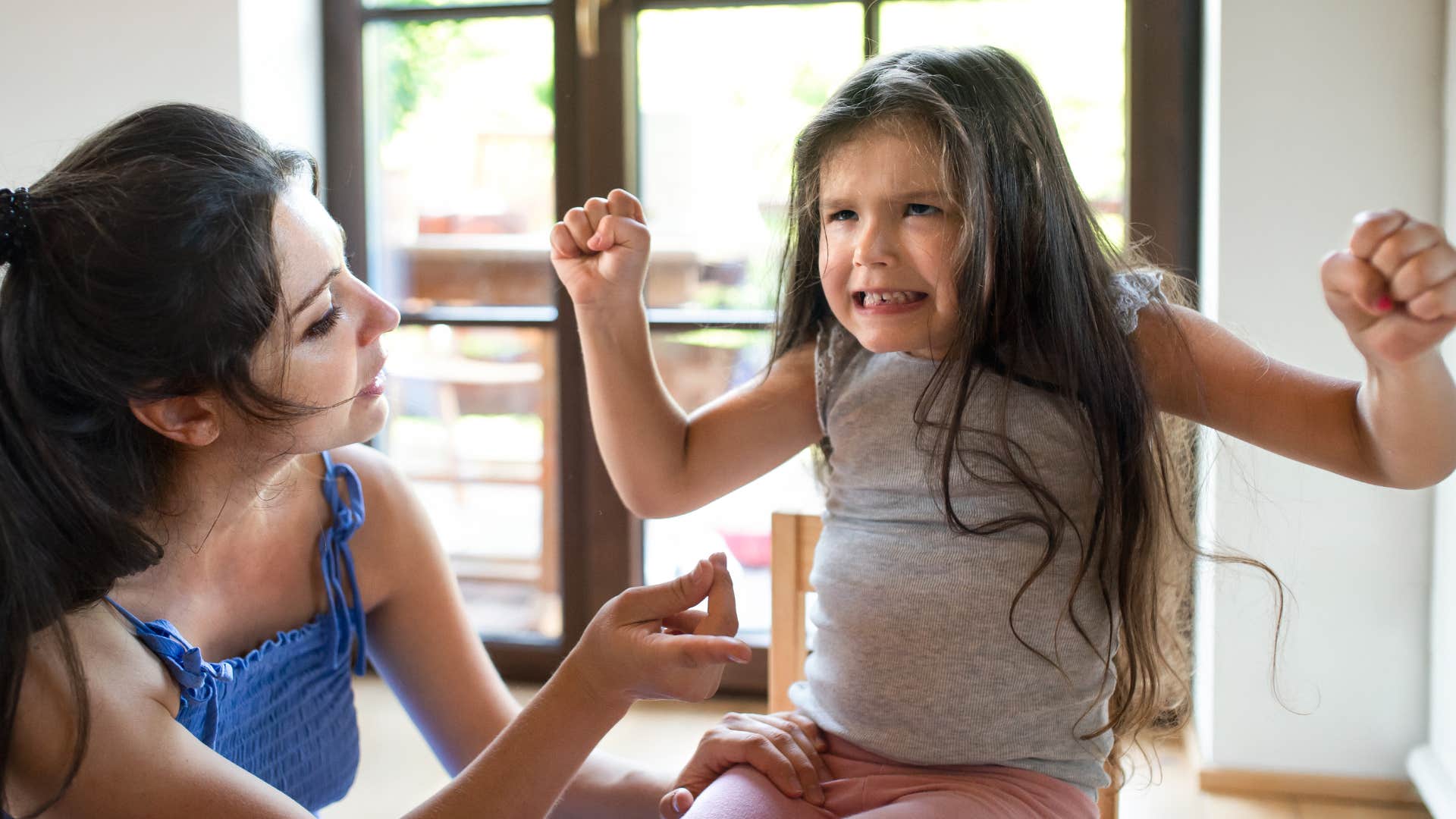 halfpoint via Canva
halfpoint via Canva
Children need room to share their achievements without fear of being shamed. While no parent wants to encourage arrogance, shutting down a child’s excitement can make them feel small.
Celebrating your child's effort and success nurtures confidence. Parents who raise confident kids teach humility, but not at the expense of pride in one’s accomplishments.
5. 'You’ll embarrass me if you do that'
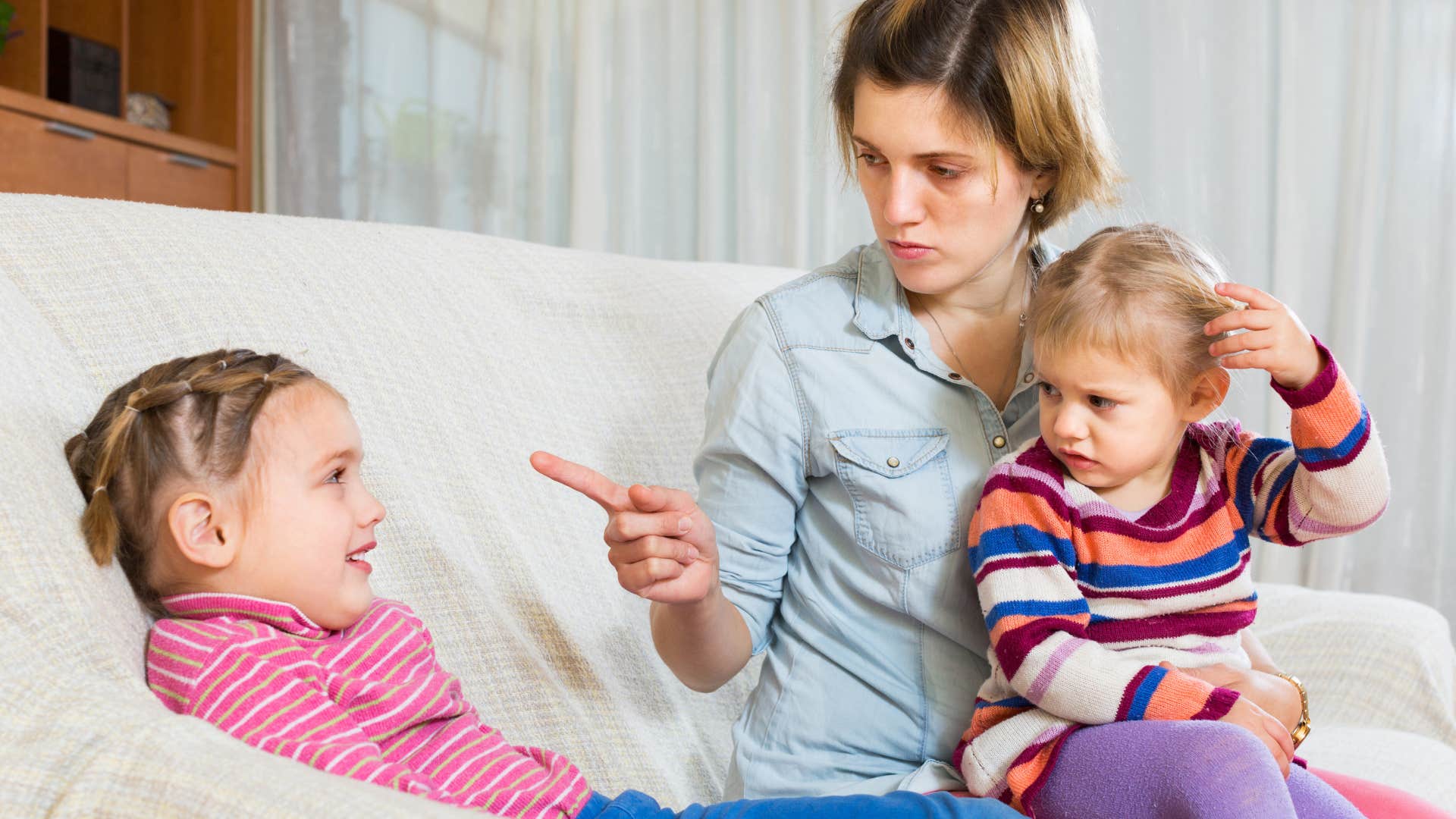 JackF from Getty Images via Canva
JackF from Getty Images via Canva
This phrase teaches kids that their role is to protect a parent’s image, not to grow into themselves. It creates fear of making mistakes in public and reinforces external validation over internal worth.
Studies note that shaming language from parents is linked to higher anxiety and lower confidence in children. Confident parents avoid tying their self-worth to their child’s behavior.
6. 'Don’t be silly'
 walter Cordero from Pexels via Canva
walter Cordero from Pexels via Canva
What feels like a harmless comment can stifle creativity and make kids second-guess their ideas. Parents who raise confident kids know that curiosity and imagination should be encouraged, not brushed aside.
Instead of labeling something as silly, they engage with the child’s thought process. This allows kids to feel safe expressing themselves, even when their ideas are unconventional.
7. 'That’s not how you’re supposed to do it'
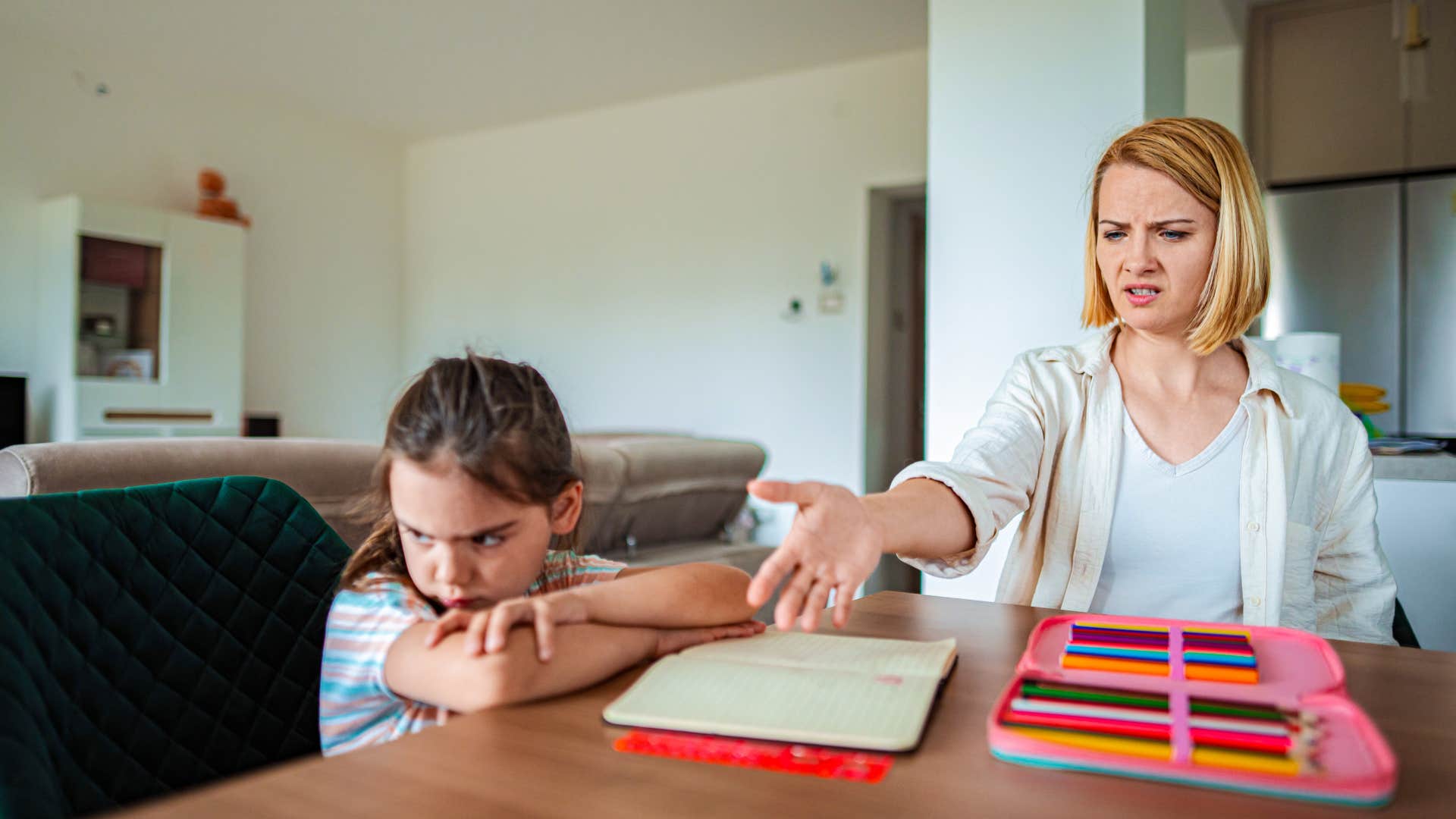 Jelena via Canva
Jelena via Canva
This phrase sends the message that there’s only one “right” way, and that mistakes are unacceptable. Confident children are usually raised in homes where experimentation is welcomed.
Psychologists studying child development note that flexible problem-solving leads to stronger confidence later in life. Parents who avoid this phrase give kids permission to figure things out their own way.
8. 'You’re just like your sibling'
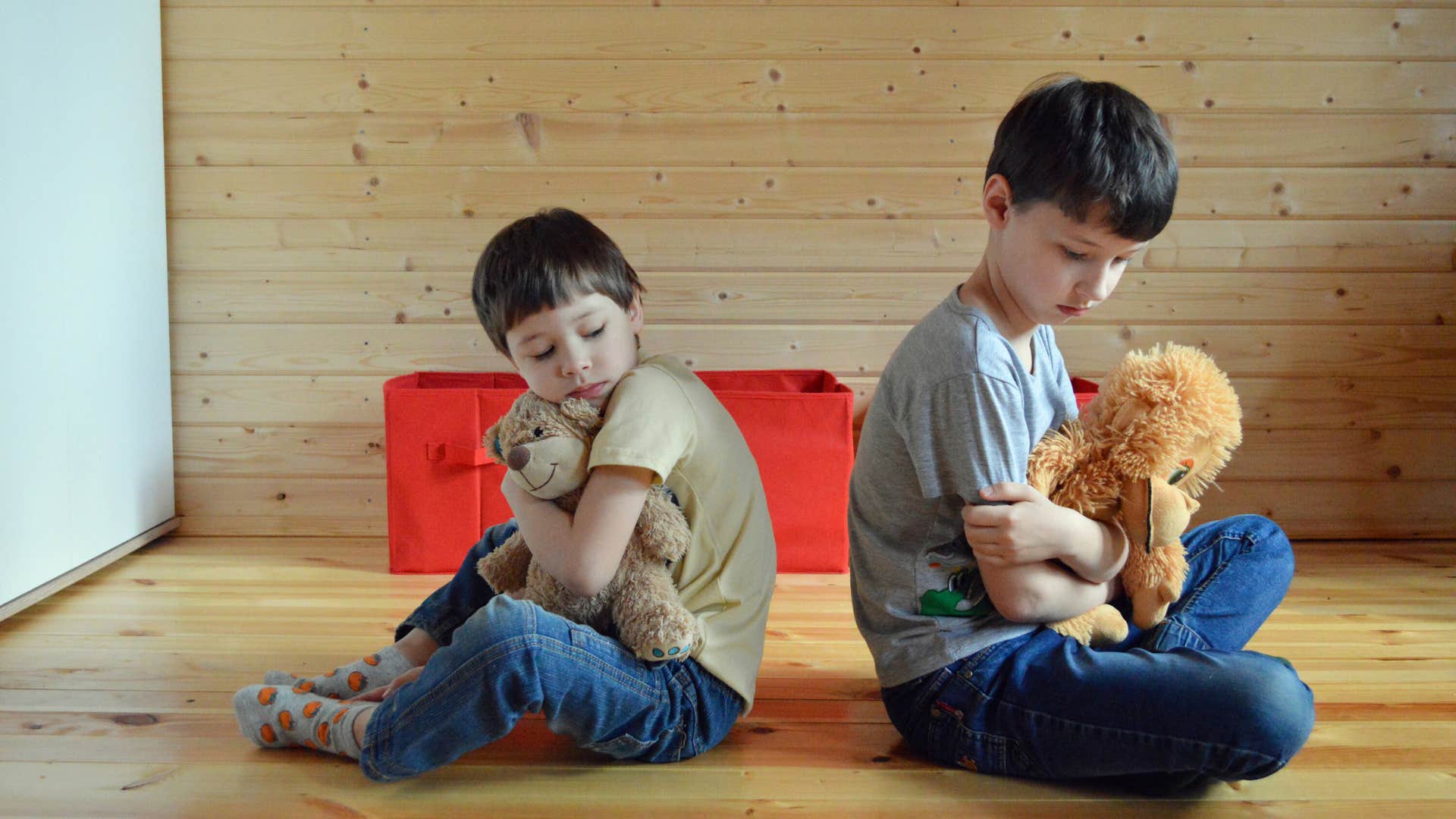 Vika Glitter from Pexels via Canva
Vika Glitter from Pexels via Canva
Comparisons may seem small, but they quietly chip away at confidence. Being measured against a sibling teaches children that they’re not valued for who they are.
Sibling comparison is strongly linked to lower self-esteem and more family conflict. Parents who want confident kids focus on individual strengths instead of pitting children against each other.
9. 'That’s too hard for you'
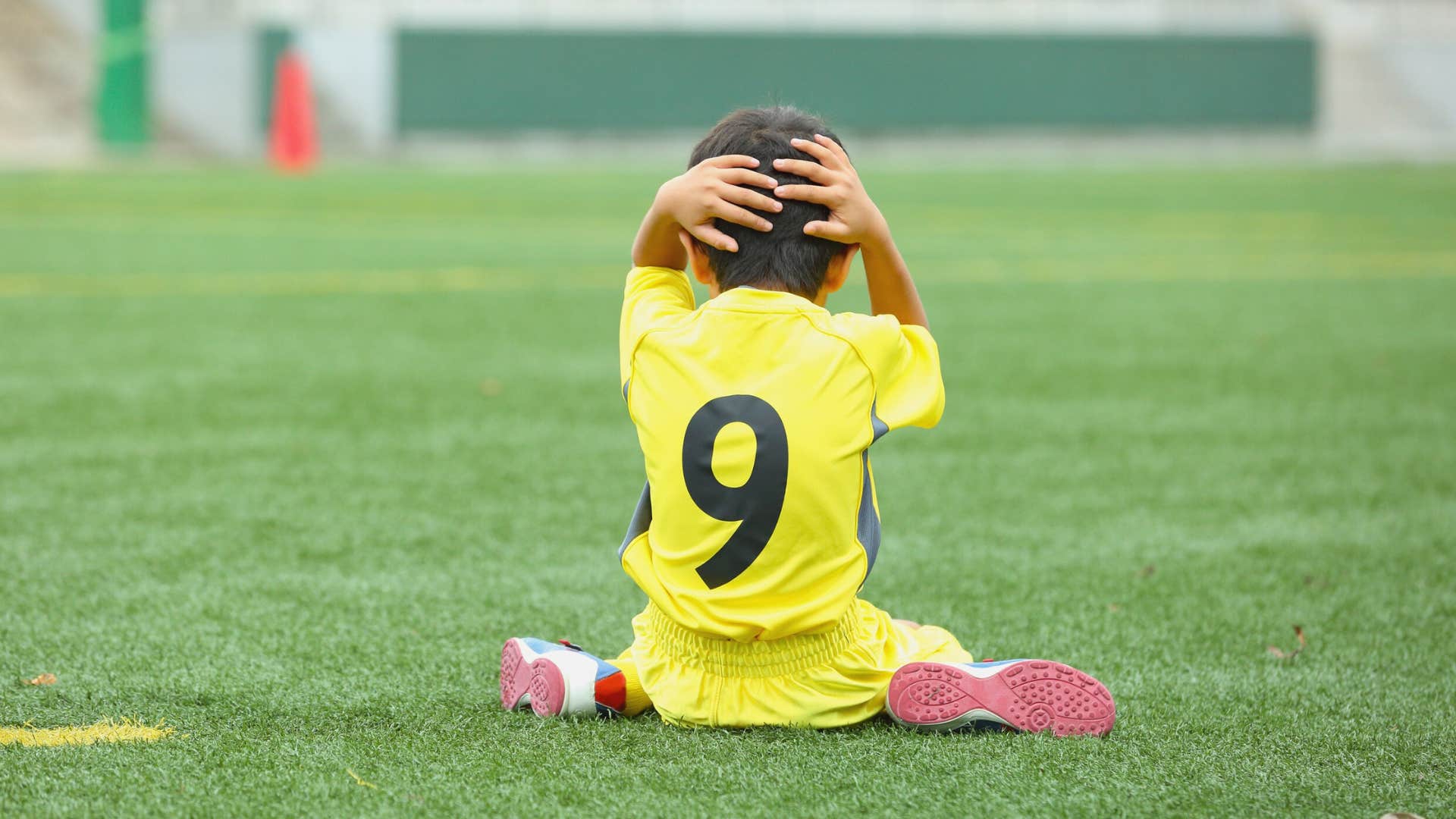 Aflo Images via Canva
Aflo Images via Canva
Telling a child something is beyond them creates self-doubt before they even try. Confident parents avoid this phrase because they know effort matters more than instant success.
Carol Dweck’s research on growth mindset shows that confidence grows when kids are encouraged to embrace challenges. Even if they struggle, the experience builds resilience instead of fear.
10. 'You’re fine, stop crying'
 Aflo Images via Canva
Aflo Images via Canva
Minimizing a child’s distress doesn’t make it disappear. It just teaches them to hide it. Parents raising confident kids know that feelings need to be processed, not dismissed.
Children whose emotions are acknowledged grow into adults who are more self-assured and capable of handling stress. By avoiding this phrase, parents show that even tough emotions are safe to express.
11. 'You’ll understand when you’re older'
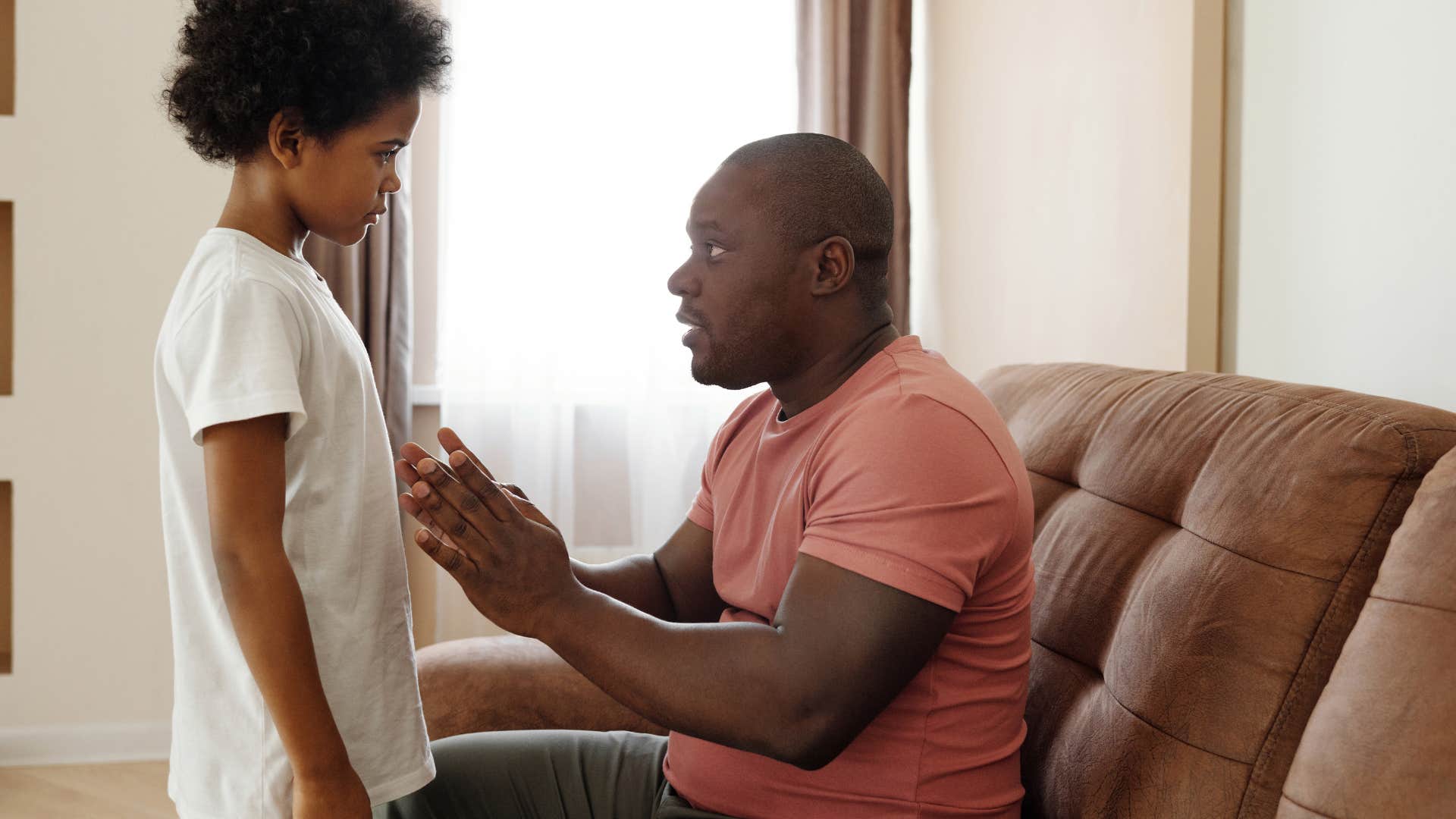 August de Richelieu from Pexels via Canva
August de Richelieu from Pexels via Canva
This phrase dismisses curiosity and signals that kids’ questions aren’t worth answering. Parents who avoid it instead give age-appropriate explanations, nurturing their child’s confidence in asking questions.
Encouraging inquiry helps kids develop problem-solving skills and reinforces the belief that their voice matters. Over time, this builds both intellectual confidence and emotional security.
Sloane Bradshaw is a writer and essayist who frequently contributes to YourTango.

